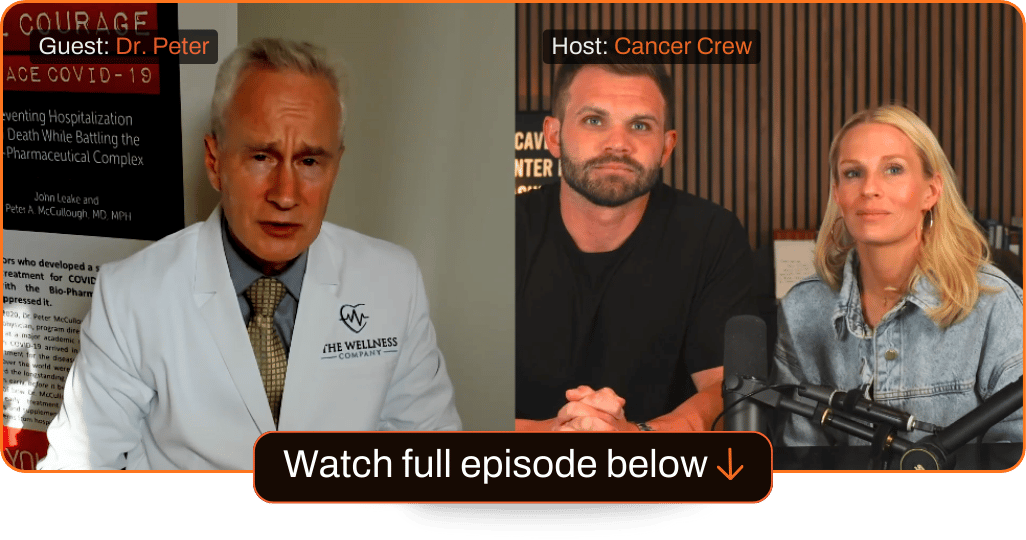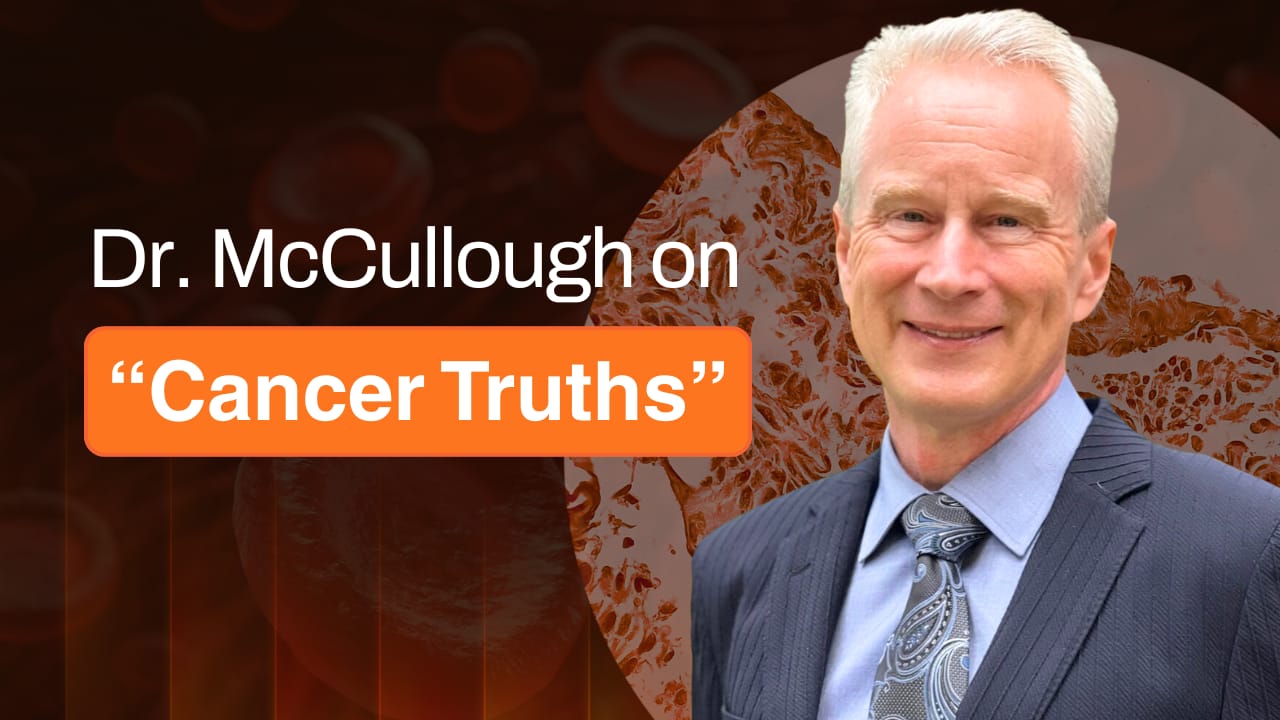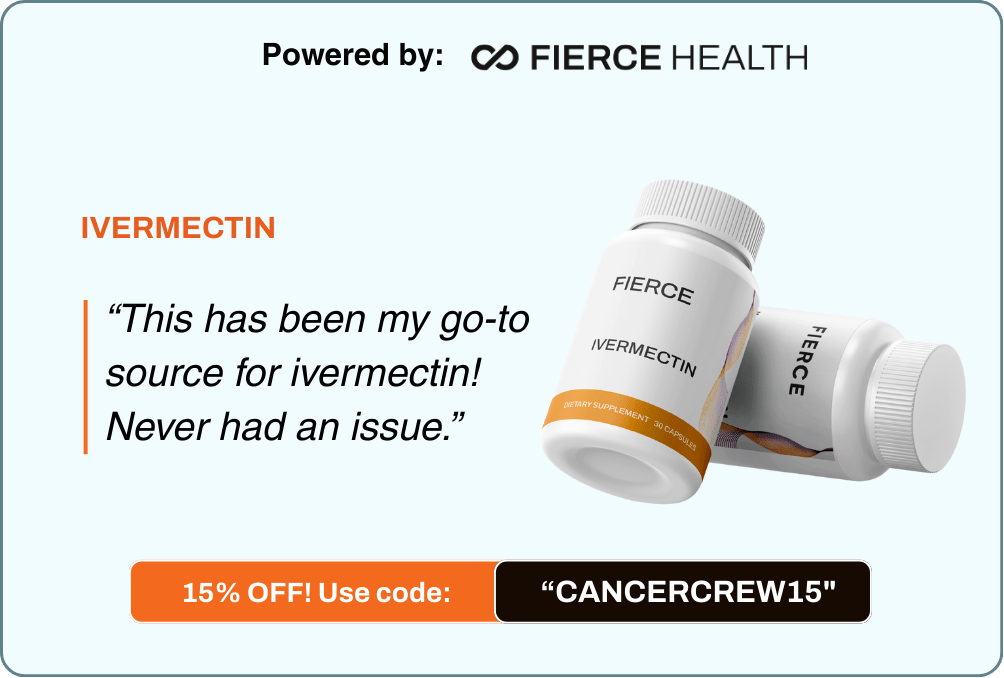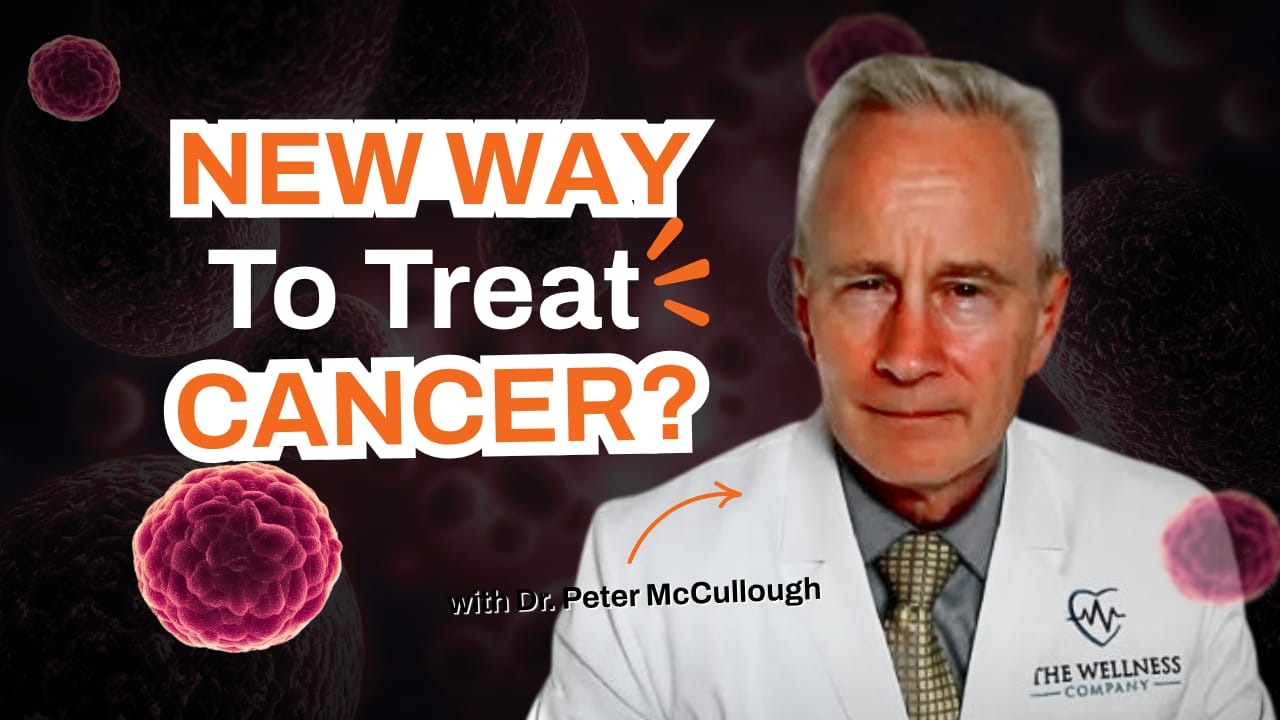“Truth is the daughter of time, not of authority."

Dr. McCullough explains why every patient must question the "standard of care."
Learn about the potential link between persistent spike proteins, chronic inflammation, and aggressive cancers, and discover a simple, natural protocol to help detoxify your body.
Hey Crew!
We recently had the incredible opportunity to sit down with Dr. Peter McCullough, one of the most courageous physicians of our time.
While many know him for his pioneering work in early COVID-19 treatment, we wanted to talk to him about something that hits closer to home for all of us, cancer.
What we learned was a powerful validation of what this community has always known in its gut, which is that medical orthodoxy is not the only path, and that true healing requires us to be active participants in our own care.

Dr. McCullough shared the deeply personal story of his own mother's battle with uterine cancer. When she was diagnosed with widely metastatic disease, one doctor might have suggested hospice. But her doctor took a different path, proposing an aggressive surgery to remove every trace of the cancer he could find.
She took that chance, and today, at 86, she is thriving. It was a stark reminder that even within the standard of care, there is a vast range of approaches, and the first opinion is rarely the only one.
Dr. McCullough encourages a spirit of questioning. He posed a critical question that every cancer patient should ask, "How much of the illness is caused by the cancer, and how much is caused by the treatment?"
For anyone who has felt vibrant and healthy before treatment, only to be left depleted and sick during it, this question resonates deeply.

He went on to explain that the pandemic served as a stress test for the entire medical establishment. A test it profoundly failed.
This failure to innovate or even acknowledge its shortcomings has led many to ask, if they failed so badly on COVID-19, what else are they failing on?
This brings us to a topic that is becoming impossible to ignore. Dr. McCullough discussed the alarming rise in aggressive "turbo cancers," particularly in younger people, and the potential role of the pathogenic spike protein.
Dr. McCullough explained that the spike protein, whether from the COVID-19 virus or the vaccines, could impair our body's natural tumor suppressor systems. This lingering protein can circulate for months, causing chronic inflammation, a known driver of the metabolic dysfunction that fuels cancer.
It is conversations like this that make Cancer Crew such a valuable resource for your cancer journey. When you join our tight-knit community, you’ll have the opportunity to learn from experts like Dr. McCullough.

Spike Protein Detox 101
So, this whole issue with the spike protein has been called "spikeopathy". It’s a good term for it. Imagine getting a bunch of tiny, sticky burrs stuck all over the inside of your body. They cling to your blood vessels, your organs, and just create constant irritation (that's the inflammation) and clog things up (that's the micro-clotting).
The goal of a detox is to help your body find those burrs, break them down, and escort them out.
Dr. McCullough developed the first-ever published protocol for this, which he calls "Base Spike Detoxification." It’s based on three powerful, natural compounds that work together to clean house.
The Three Pillars of Spike Detox
The protocol combines three key ingredients, each with a specific job.

First is Nattokinase. This is an enzyme that comes from fermented soybeans (natto). Its main job is to degrade the spike protein itself. It also has a powerful ability to dissolve fibrin, the material that forms blood clots, including the stubborn microclots that the spike protein can cause. The recommended dosage is 2000 FU (or 100mg), taken twice a day without food.

Next is Bromelain. You might know this one from pineapple. Bromelain is a powerful anti-inflammatory, calming the irritation the spike proteins cause. But it also works with nattokinase, helping to break down the spike protein and even blocking it from attaching to our cells in the first place. Dr. McCullough's protocol suggests 500mg once a day, also without food.

Finally, there's Curcumin. This is the active compound in turmeric, and it's one of nature's most potent anti-inflammatories. It helps to shut down the inflammatory pathways that the spike protein activates and blocks the spike from binding to our cells.
The protocol calls for 500mg twice a day, and it's best taken with food to help absorption. It's also recommended to look for a formula with enhanced bioavailability, like one that includes piperine (black pepper extract).
You might be thinking, "Where are the big, official studies?" And that's the point. Dr. McCullough himself notes that large-scale, placebo-controlled trials haven't been done, because they haven't been funded by the institutions that control medical research.
This isn't a weakness in the protocol, it's a reflection of a broken system. It's why we have to rely on brave doctors and our own research to find answers.
Knowledge will set you free. We want to give you the best information available because Raleigh and I know firsthand what it feels like to feel lost and confused. When you join Cancer Crew+, you will have access to the information and community you need to make the best decision for yourself and your family.
With heart,
Raleigh and Carli
Founders of The Cancer Crew


Help us make the next issue even better by picking the option that fits you best.

Must-Reads You Might’ve Missed







